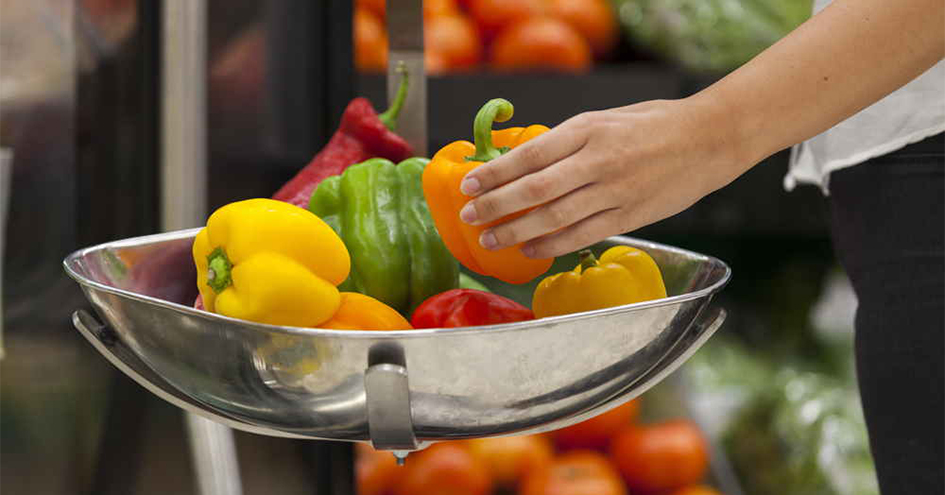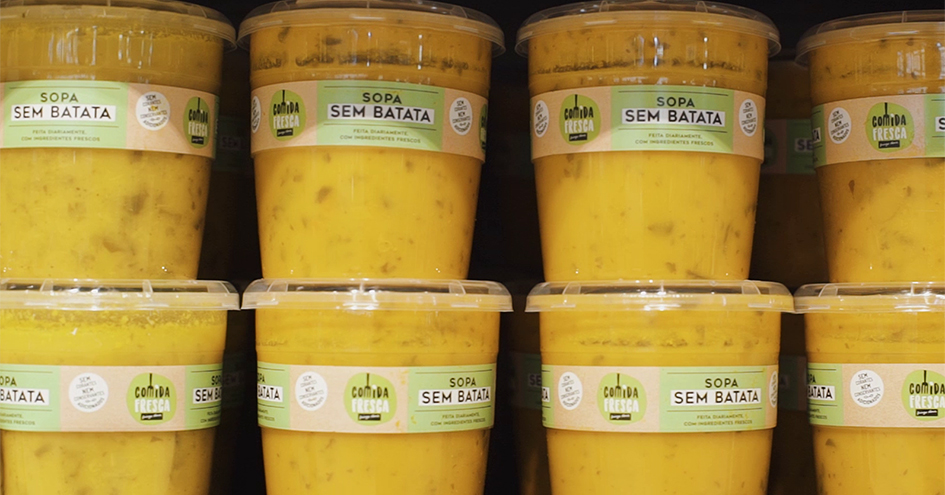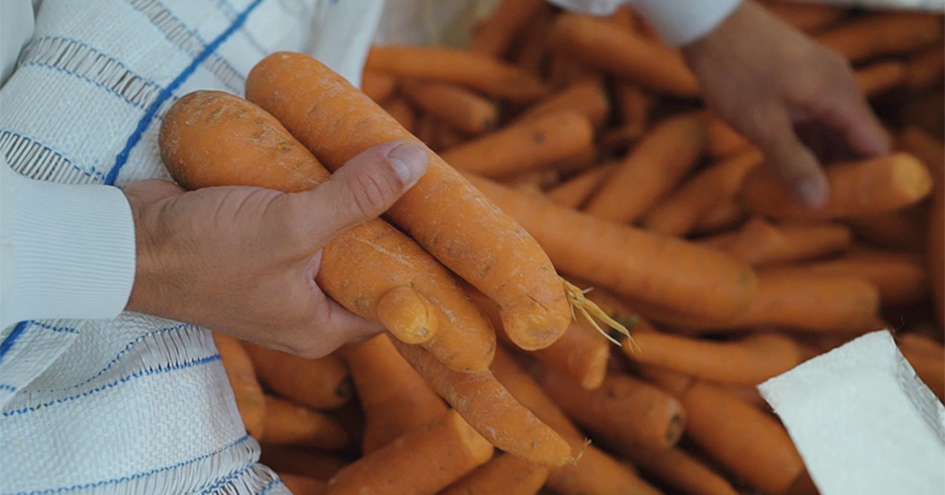Our businesses produced nearly 600,000 tonnes of waste, 2.7% more than in 2022, due to the growth of our Companies’ operations. When taking tonnes of waste produced per million euros in sales into account, there was a reduction in waste of 14.8% compared to 2022.
The increase in hazardous waste is associated with the scrapping of refrigeration equipment following significant investment in the refurbishment of Pingo Doce and Recheio stores. Old freezers and refrigerators are being replaced by equipment that runs on natural refrigeration gases or those with low global warming potential.
Waste produced (tonnes/million euros in sales) |
|
2023 |
|
2022 |
|
Δ 2023/2022 |
|---|---|---|---|---|---|---|
Specific value |
|
19.38 |
|
22.75 |
|
-14.8% |
Waste produced (tonnes) |
|
2023 |
|
2022 |
|
Δ 2023/2022 |
|---|---|---|---|---|---|---|
By type of waste |
|
593,064 |
|
577,538 |
|
+2.7% |
Cardboard and paper |
|
357,693 |
|
344,172 |
|
+3.9% |
Plastic |
|
16,069 |
|
15,224 |
|
+5.6% |
Wood |
|
2,178 |
|
2,049 |
|
+6.3% |
Organic |
|
111,636 |
|
109,460 |
|
+2.0% |
Unsorted waste |
|
87,301 |
|
90,642 |
|
-3.7% |
Cooking oil and fats |
|
167 |
|
211 |
|
-20.9% |
Effluents treatment waste |
|
12,751 |
|
9,704 |
|
+31.4% |
Hazardous waste |
|
387 |
|
307 |
|
+26.1% |
Other waste |
|
4,882 |
|
5,769 |
|
-15.4% |
By business unit |
|
|
|
|
|
|
Biedronka |
|
445,082 |
|
438,763 |
|
+1.4% |
Hebe |
|
1,156 |
|
1,197 |
|
-3.4% |
Pingo Doce |
|
93,994 |
|
93,855 |
|
+0.1% |
Recheio |
|
7,222 |
|
6,455 |
|
+11.9% |
Ara |
|
42,020 |
|
34,643 |
|
+21.3% |
JMA |
|
3,590 |
|
2,625 |
|
+36.8% |
Waste recovery and destination in operations
The waste recovery rate was 85.4%, with 13.5% of waste going to landfill.
Waste recovery rate |
|
2023 |
|
2022 |
|
Δ 2023/2022 (p.p.) |
|---|---|---|---|---|---|---|
Overall value |
|
85.4% |
|
85.5% |
|
-0.1 |
Biedronka |
|
91.5% |
|
90.8% |
|
-0.7 |
Hebe |
|
79.7% |
|
81.4% |
|
-1.7 |
Pingo Doce |
|
64.3% |
|
65.3% |
|
-1.0 |
Recheio |
|
72.4% |
|
70.3% |
|
+2.1 |
Ara |
|
70.7% |
|
75.3% |
|
-4.6 |
JMA |
|
88.6% |
|
87.5% |
|
+1.1 |
Waste management methods |
|
2023 |
|
2022 |
|
Δ 2023/2022 (p.p.) |
||||
|---|---|---|---|---|---|---|---|---|---|---|
Recovery1 |
|
85.4% |
|
85.5% |
|
-0.1 |
||||
Landfill |
|
13.5% |
|
14.1% |
|
-0.6 |
||||
Incineration (without energy recovery) |
|
0.1% |
|
0.0% |
|
+0.1 |
||||
Other destinations without recovery |
|
1.0% |
|
0.4% |
|
+0.6 |
||||
|
||||||||||
Fighting food waste1
We are committed to halving the food waste2 generated per tonne of food sold by our banners by 2030, in line with target 12.3 of goal 12 – Responsible Consumption and Production, defined in the United Nations Sustainable Development Goals. We have also set the goal of limiting annual food waste to 2.5% of the total sales volume (tonnes) of foodstuffs in the period from 2024 to 2026.

In 2023, notwithstanding all efforts from our banners, food waste increased 4.5% compared to 2022, to 18.5 kg per tonne of food products sold, with the perishables categories accounting for around 70% of the food waste generated by our operations. Despite increased pressure on our goal of reducing food waste footprint, the investment made in the perishables categories embodies our conviction to promote healthier eating habits that incorporate less processed or unprocessed food, and which necessarily have much shorter shelf life than processed products, such as tinned, dried or frozen products.
Kg of food wasted/tonne of food sold |
|
2023 |
|
2022 |
|
Δ 2023/2022 |
||||||
|---|---|---|---|---|---|---|---|---|---|---|---|---|
Food waste1 |
|
18.5 |
|
17.7 |
|
+4.5% |
||||||
Destination |
|
|
|
|
|
|
||||||
Animal feed and bioprocessing |
|
1.0 |
|
1.1 |
|
-9.1% |
||||||
Anaerobic digestion, composting and controlled combustion |
|
11.2 |
|
11.9 |
|
-5.9% |
||||||
Landfill, incineration and wastewater treatment systems |
|
6.2 |
|
4.7 |
|
+31.9% |
||||||
Quantity per business unit |
|
|
|
|
|
|
||||||
Biedronka |
|
19.6 |
|
18.7 |
|
+4.8% |
||||||
Pingo Doce2 |
|
22.1 |
|
22.0 |
|
+0.5% |
||||||
Recheio |
|
4.0 |
|
5.1 |
|
-21.6% |
||||||
Ara |
|
14.5 |
|
11.7 |
|
+23.9% |
||||||
|
||||||||||||
The increase in the amount of food that is disposed of as waste (landfill, incineration and wastewater treatment systems) is linked to the lack of infrastructure for the recovery of organic waste, especially in Colombia.
We carry out several initiatives up and downstream of our value chain and in our operations to fight food waste3. In total, we recovered 70.7 thousand tonnes of food in 2023, which corresponds to 46.3 thousand tonnes of CO2 avoided.


One such initiative is the incorporation of ungraded food (or “ugly” vegetables with the same nutritional profile as graded products) into the soups we produce in Portugal and Poland, and into 4th range products (washed and pre-cut ready-to-use vegetables) sold at Pingo Doce and Recheio stores. Since 2015, this use of ungraded vegetables has prevented the waste of 127,000 tonnes of food. We also add by-products from the food industry and ungraded vegetables to JMA’s livestock feed. This initiative has enabled the recovery of 65,000 tonnes of food since 2018.
We have markdown implemented at Pingo Doce since 2019 and at Biedronka since 2020. This initiative involves selling products that are close to their sell-by date at reduced prices and was implemented in 892 Biedronka and Pingo Doce stores in 2023. Over 27,000 tonnes of food waste have been avoided since 2019. We also use leftover roast chicken and roast suckling pig to make various products (e.g., pizzas, salads and sandwiches) available at the Pingo Doce takeaway, avoiding 345 tonnes of food waste.
In 2023, Biedronka established a partnership with Too Good To Go, a company that runs a surplus food sales platform covering 500 stores. In 2023 one million bags were delivered, preventing an estimated 1,600 tonnes of food from being wasted. In December, Biedronka ran a special week-long campaign to support Polish producers and raise consumer awareness about the consumption of “ugly” vegetables, selling nearly 200 tonnes of carrots during the campaign.
Pingo Doce sells salmon heads at its fish counters at reduced prices, avoiding 161 tonnes of food waste in 2023. Products such as golden apples, Rocha pears, persimmons, green beans and carrot sticks falling outside of specification were also sold. An initiative was also carried out at Halloween to sell oddly shaped pumpkins. Together, these initiatives helped avoid around 1,500 tonnes of waste. We also cut larger fruit (melons, watermelons, cantaloupes, papayas and pineapples) into halves so that customers can buy the quantity they want and avoid waste in stores and at home.
Food is donated to charities through our stores and distribution centres4. In 2023, we donated 19,000 tonnes, 12.2% less than in 2022, mainly due to the lower availability of products for donation given the success of the markdown project. Employees are trained5 to ensure that safe food for donation is identified, selected and separated.
Along with these measures, we also hold campaigns to raise consumer awareness through social media, leaflets and in-store communication, and publish recipe books to make use of leftover food6.
Customer waste recovery
To promote waste sorting and recovery, we provide our customers recycling bins and other systems7:
- for the collection of used batteries, small electrical appliances, used cooking oil or coffee pods in 96% of the Pingo Doce store network;
- for the collection of small electrical appliances and used batteries at 91% of Biedronka stores;
- for the collection of used batteries at 74% of Ara stores and at all Pingo Doce and Recheio stores;
- for the collection and recycling of coffee pods at Pingo Doce stores, which helped raise 2,300 euros for charity;
- a pilot project implemented at a Recheio store in partnership with Novo Verde (a waste management company) to encourage the separation of plastic and metal packaging waste by HoReCa customers. Between May and December 2023, customers used the recycling bins over 6,000 times and more than 28 tonnes of packaging were collected;
- a project of which Pingo Doce is a partner, to encourage consumers to return beverage packaging (since the project began in 2019, a total 108 tonnes of materials such as PET, glass and aluminium have been collected).
Waste dropped off by customers in recycling bins at stores
Waste collected in stores (tonnes) |
|
2023 |
|
2022 |
|
Δ 2023/2022 |
||||
|---|---|---|---|---|---|---|---|---|---|---|
Pingo Doce |
|
648.44 |
|
607.91 |
|
+6.7% |
||||
Batteries |
|
18.74 |
|
7.51 |
|
+149.5% |
||||
WEEE1 (including fluorescent light bulbs) |
|
69.33 |
|
57.22 |
|
+21.2% |
||||
Used cooking oil |
|
72.59 |
|
65.27 |
|
+11.2% |
||||
Coffee pods |
|
487.80 |
|
477.91 |
|
+2.1% |
||||
Recheio |
|
0.20 |
|
1.22 |
|
-83.6% |
||||
Batteries |
|
0.20 |
|
1.22 |
|
-83.6% |
||||
Biedronka |
|
300.33 |
|
296.24 |
|
+1.4% |
||||
Batteries |
|
273.67 |
|
237.77 |
|
+15.1% |
||||
WEEE |
|
26.65 |
|
58.48 |
|
-54.4% |
||||
Hebe |
|
1.20 |
|
0.00 |
|
- |
||||
Batteries |
|
1.20 |
|
0.00 |
|
- |
||||
Ara |
|
16.33 |
|
18.28 |
|
-10.7% |
||||
Batteries |
|
0.16 |
|
1.96 |
|
-91.8% |
||||
Used cooking oil |
|
0.02 |
|
0.13 |
|
-84.6% |
||||
WEEE |
|
16.15 |
|
16.19 |
|
-0.2% |
||||
|
||||||||||
In 2023, customer waste collection levels increased at Pingo Doce and Biedronka stores. At Pingo Doce, the use of recycling bins increased as a result of awareness-raising campaigns and investments made. In the case of Ara, the decrease is related to a change in the frequency of collection, with the scheduling of pick-ups having been adjusted to reduce the number of trips to the stores, ensuring that larger quantities are collected in fewer journeys.
1 We were the first retailer in Portugal to calculate and publicly disclose our food waste footprint, in line with the methodology of the World Resources Institute’s Food Loss and Waste Protocol (FLWP), enabling us to ensure that these objectives are accounted for and monitored.
2 The calculation assumptions are available at www.jeronimomartins.com/cr-documents-2023.
3 More information at www.jeronimomartins.com.
4 For more information, see “Direct support”.
5 Refers to hygiene and food safety training. For more detailed information, see “Training”.
6 For more information, see “Awareness campaigns”, and the “Responsibility” page at www.jeronimomartins.com/en/responsibility/.
7 For more detailed information on the number and type of recycling bins available to customers, visit the “Responsibility” page at www.jeronimomartins.com/en/responsibility/.
